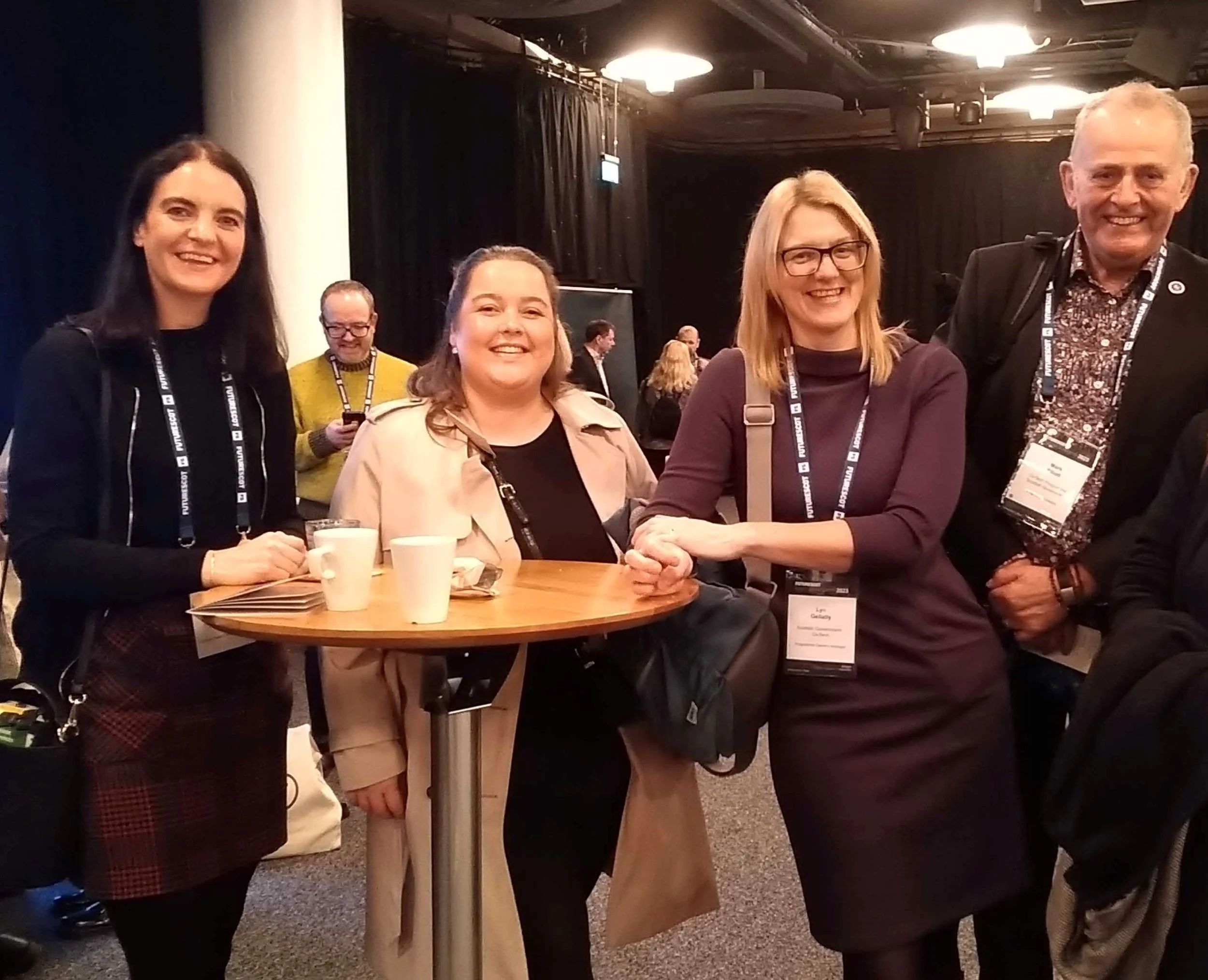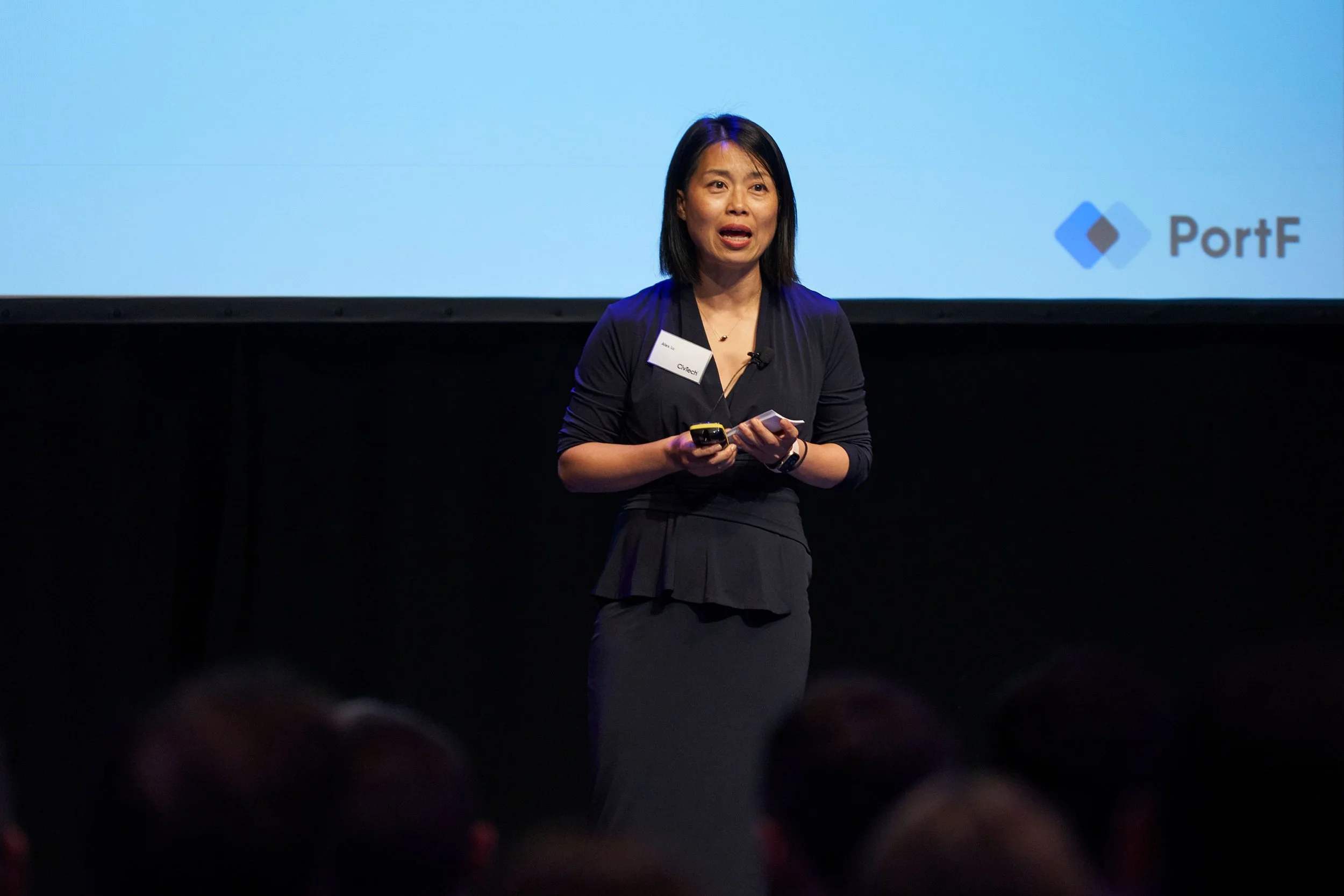What it’s really like to be a Challenge Sponsor
It only seems like yesterday we were preparing for CivTech Round 10 —collaborating with new Challenge Sponsors and getting ready for the launch. Now, as we find ourselves in Autumn 2024, the CivTech Round 10 Challenges have been launched, the application window has closed, and we've received a record-breaking number of applications for the Accelerator! But the journey doesn't end here. We're already gearing up for CivTech Round 11 and are seeking Challenge Sponsors who are eager to find innovative solutions to the challenges they face to join us once again.
But what does it really mean to be a Challenge Sponsor? The best way to understand is by hearing from one directly. And not just any Challenge Sponsor—CivTech's very own Programme Delivery Manager, Lyn Gellatly. Back in 2022, CivTech became a Challenge Sponsor for the first time to address one of our own needs. We caught up with Lyn to learn more about her experience.
Could you share more details about the problem CivTech had and why it was important to solve it?
The Challenges run by CivTech and its Sponsors cover a wide range of topics, needs, and solutions—anything from handling shared repairs in tenement buildings, helping new Scottish Government employees get started faster, boosting tree seed production, to decarbonising manufacturing. The results are just as varied, bringing both direct and indirect benefits in areas like the economy, society, culture, and the environment.
For CivTech, the main goal was to understand the impact of what we do, and be able to clearly demonstrate the results. We needed a reliable and efficient system to establish expected outcomes, track progress, and evaluate them so we could create robust value for money information, and highlight the broader benefits we were achieving.
Getting this right would not only deliver a huge benefit to CivTech – just about every public sector project, programme and initiative needs this.
What were the benefits of solving the Challenge through CivTech?
It was a great opportunity to engage into technology and innovation in a collaborative and cost-effective way. Central to the CivTech approach is that the Sponsor defines the problem, not the solution. This is different to a standard system procurement where the onus is on the customer to provide a specification of what is required. What is great about the CivTech approach is that there is a recognition that the Sponsor (me in this case!) doesn’t necessarily know what the best solution or technical possibilities are. So, the main benefit for me is not only getting a solution to the problem but being able to work collaboratively with an innovative company to build the best solution possible.
The CivTech team also has a team of brilliant Innovation Managers. They walked me through the technical side of things and helped out with contract negotiations. I also joined workshops during the program, which were very helpful as we developed the solution. Overall, the experience was about having the freedom to experiment and quickly co-create the solution we needed.
How are you finding the experience of working with a new innovative company to develop the solution?
My background is programme and project management and until joining CivTech I worked on more traditional system development projects, either via direct procurements or using an in-house development team to create new services and systems. Working directly with PortF, a startup company, has been a refreshing experience, providing me with valuable insights into different approaches and innovative ideas for the solution. Understanding the commercial aspects of the company alongside product development is really interesting and has certainly given me a better overall understanding of the company perspective. I hope that my experience and insights have been beneficial to the company as they explore future customer opportunities!
It’s been two years since the process began—what progress has been made toward a solution? What’s next?
The initial focus was to develop a use case for Social Investment Scotland (SIS) that would enable them to monitor the Social Return on Investment (SROI) associated with their funding initiatives. For CivTech, development started last year on the system to efficiently forecast and track the impact of the companies and sponsors participating in the CivTech programme. We can now assess the economic impact of the companies that have completed the CivTech programme, including metrics such as job creation, turnover, local economic impact, and employment figures in Scotland. Currently, the system is still in the testing phase, but it’s already showing impressive results: this year, using it, we saved a huge amount of time and effort collecting company results – over 40 hours previously spent on manual tasks such as data collection, follow-ups, and analysis simply disappeared, marking a win for us even before the official launch!
The next stage of the project involves enhancing the system to monitor the impact for Sponsors, specifically tracking the benefits derived from solving Challenges and managing the process from benefit identification to realisation. This will include automating update requests and centralising data collection. By doing so, we will be able to showcase the overall impact. We anticipate going live with this functionality early next year, and there is already growing interest from various stakeholders within the Scottish Government regarding the PortF system. Monitoring benefits realisation is a challenge not only for CivTech but for all change initiatives and programmes. Given the current financial landscape, it is becoming increasingly vital to demonstrate the impact of organisational changes and to ensure that limited budgets are allocated to the right priorities, making a tangible difference.
And there’s more – with the data gathered we can develop increasingly sophisticated ways of analysing the CivTech programme in real time. In effect, we’re creating a new capability: performance intelligence.
What advice would you offer to anyone thinking about becoming a Challenge Sponsor?
Just go for it! Yes, it’s a different approach from standard system or service development projects and yes it has risks (what projects don’t?!) but the potential benefit of finding a real innovative solution to your problem is really exciting. Working collaboratively with the innovative companies to find and build a solution to your challenge is interesting and rewarding. So why not?!
Join one of our online events to learn more about CivTech, explore funding opportunities, and hear success stories. Whether you're driving organisational change or seeking innovative solutions, we welcome anyone from the public or third sector to attend. Book your place here.


